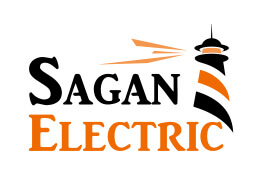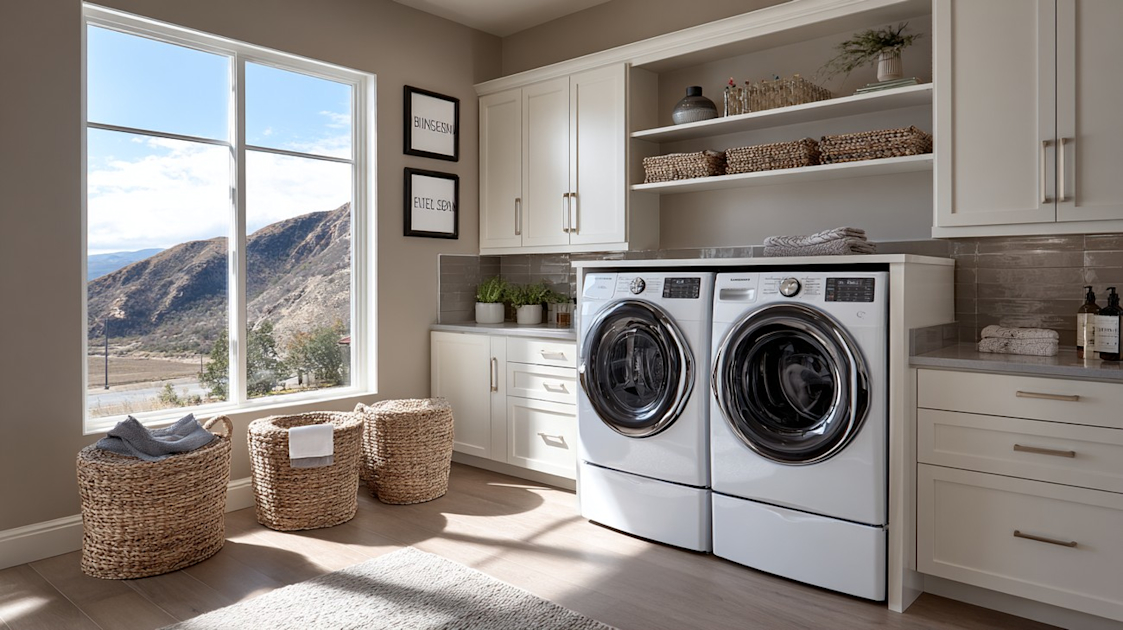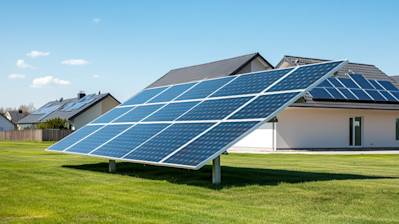When it comes to household appliances such as dryers, the choice between gas and electric versions can be daunting. Both gas and electric dryers have their strengths and specific requirements, which makes the decision more than just a simple comparison. This blog delves deep into these two types of dryers to assist buyers in making a sound decision.
Understanding the Basics of Dryers
Before diving into the specifics of gas and electric dryers, it's essential to understand the role of a dryer in your laundry room. A dryer is a handy appliance that drives hot air through your clothes to expel moisture and reduce drying time. Not only does this make the laundry process more efficient, but it also adds a level of comfort in seasons when outdoor drying isn't feasible.
Understanding Electric Dryers
Electric dryers are prevalent and have become standard in homes across the globe. They operate using electricity to power up the motor that turns the drum, and an electric heating element that warms the air.
- They come with a power cord that plugs into standard outlets.
- Electric dryers are generally less expensive upfront.
- They take longer to dry clothes than gas dryers.
Delving into the World of Gas Dryers
Gas dryers, on the other hand, use natural gas or propane to power the heating element. These types of dryers require a gas hookup in your laundry area, which may not be standard in all homes.
- Gas dryers require professional installation.
- They are more efficient and dry clothes faster.
- Gas dryers tend to be more expensive upfront but save money over time with lower energy costs.
Energy Efficiency: Gas vs Electric Dryer
One primary differentiator between gas and electric dryers is their level of energy efficiency. With the growing importance of sustainable living and reducing carbon footprints, energy efficiency often becomes a decisive factor.
Energy Consumption of Electric Dryers
Electric dryers typically consume more energy compared to their gas counterparts. This fact translates into slightly higher operating costs. However, the energy consumption of electric dryers is subject to the energy efficiency ratings of individual models.
Energy Consumption of Gas Dryers
Gas dryers, being comparatively more efficient, consume less energy, thereby reducing operational costs in the long run. While the initial investment is higher for gas dryers, you could save up significantly on your electricity bills over time.
Lifespan and Maintenance: Comparing Gas and Electric Dryers
The lifespan and maintenance requirements of a dryer are another crucial factor to consider.
Lifespan and Maintenance of Electric Dryers
Electric dryers are generally easier to maintain due to fewer moving parts and a simpler design. Additionally, they do not require professional installation and can be repaired by any professional who specializes in appliances.
Lifespan and Maintenance of Gas Dryers
Contrarily, gas dryers see a slightly shorter lifespan due to their complex built and might demand professional maintenance services for repairs.

Frequently Asked Questions about Gas Vs Electric Dryer
What Are the Differences in Installation?
Gas dryers require a dedicated gas line, while electric dryers can be plugged into most standard electrical outlets. Installing a gas line can be a more complex process, often requiring professional help, which can add to initial costs.
How Does the Cost Compare Between Gas and Electric Dryers?
While gas dryers are more expensive upfront, they tend to be cheaper to operate over time because they use less energy. Electric dryers are usually cheaper initially, but their operating costs can be higher due to less energy efficiency.
Are There Any Safety Differences Between Gas and Electric Dryers?
In terms of safety, both types have few risks if properly maintained. However, gas dryers have a slight risk of gas leaks if they are incorrectly installed or a problem arises.
How Long Does a Gas Dryer vs. Electric Dryer Last?
The longevity of both the gas and electric dryer can be comparable if they are maintained properly. The difference would be minimal, with both types of dryers typically lasting anywhere from 10-13 years.
How Do Maintenance Requirements Compare?
Maintenance for gas and electric dryers is relatively similar, involving routine cleaning of lint and ensuring proper venting. However, gas dryers may need additional checks to ensure the gas line and connection are intact.
Is One Dryer Type more Environmentally Friendly?
If you're looking at minimizing your household's carbon footprint, a gas dryer can be a slightly better option. Natural gas is cleaner-burning than the coal or nuclear energy that often powers electric dryers, leading to a lower overall carbon emission footprint with a gas dryer.
How Does the Heat Output Compare Between Gas Dryers and Electric Dryers?
Gas dryers tend to generate heat more quickly than electric dryers, which can mean less time for your clothes in the dryer. On the other hand, electric dryers tend to heat up more slowly and evenly, which can be gentler on some fabrics.
How Does the Quality of Dry Differ?
The quality of dry can vary between a gas dryer vs. an electric dryer. Some people find that gas dryers tend to produce a “crisper” dry compared to electric dryers, but this can vary by model.
Gas Dryer
Pros of Gas Dryers
Lower Operating Costs
The primary advantage of gas dryers over electric dryers is the lower operating costs. On average, a gas dryer in the United States uses $0.15 to $0.33 per load, depending on the energy-efficiency of the model, local gas prices, and the specific heating requirement of each load. This is significantly cheaper than what electric dryers typically consume, which can range from $0.30 to $0.40 per load.
Faster Drying Times
Another benefit of gas dryers is their faster drying times. As gas burners generate heat more quickly than electric heating elements, gas dryers can dry clothes in less time. This not only means less waiting for your laundry to be ready, but it also makes a gas dryer more energy-efficient because it doesn't need to run as long.
Cons of Gas Dryers
High Initial Cost
While gas dryers can save you money in the long run due to lower operating costs, their initial purchase price is generally higher than that of electric dryers. Depending on the brand and model, a gas dryer can cost anywhere from $50 to $150 more than its electric counterpart. Moreover, if you don't already have a gas line running to your laundry room, the installation cost can add up.
Potential Safety Risks
Gas dryers pose potential safety risks as well. A gas leak, though rare, can be extremely dangerous. These machines must be installed correctly by a professional and maintained regularly to ensure they remain safe to use. This might cause additional cost compared to electric dryers, which are relatively simple to install and have fewer safety concerns.
Electric Dryer
Pros of Electric Dryers
Lower Initial Costs
The most beneficial aspect of an electric dryer is its lower upfront cost. Electric dryers are generally cheaper to buy than gas dryers. This can make a big difference for people on a budget, or those who simply want to save on their initial investment.
Simplicity in Installation
Electric dryers only require a 240-volt outlet to be used, which is typically standard in most homes. This makes them easy to install, and you can potentially do it yourself without requiring a professional, which could save you the cost of installation.
Wide Range of Models
There are typically more electric than gas models on the market, which means you have a wider range to choose from when it comes to features, appearance, and price.
Cons of Electric Dryers
High Operating Costs
Electric dryers are generally more expensive to operate than gas dryers. The cost of electricity per load can add up over time, making an electric dryer more expensive to use in the long run.
Longer Drying Times
Because electric dryers take longer to heat up compared to gas dryers, they also take longer to dry your clothes. Longer drying times mean more energy used, and therefore, more operating cost.
Higher Carbon Footprint
Electric dryers typically have a higher carbon footprint than gas dryers. While some electricity is generated from renewable sources, much of it comes from coal or natural gas power plants. So, depending on where your electricity comes from, your electric dryer could be contributing to carbon emissions more than a gas dryer would.

Common Myths and Misconceptions about Gas and Electric Dryers
Gas Dryers are More Expensive than Electric Dryers
While it's true that the initial purchase price of a gas dryer can be higher than an electric one, the overall operating cost of a gas dryer is typically lower. Natural gas is usually more affordable than electricity, and gas dryers tend to heat up faster and dry clothes more quickly, reducing energy use. Therefore, although the upfront cost of a gas dryer may be higher, the overall cost can actually be lower in the long run.
Gas Dryers are Dangerous
One common myth is that gas dryers are dangerous due to the potential for carbon monoxide poisoning or gas leaks. However, modern gas dryers are designed with extensive safety measures in mind. They come equipped with automatic shut-off features in case of a malfunction, and as long as they're properly installed and regularly maintained, gas dryers are no more dangerous than other gas-fueled appliances in your home.
Carbon Monoxide Poisoning
While it is true that gas-powered appliances can produce carbon monoxide, modern gas dryers have built-in safeguards to prevent this danger. Regular maintenance and proper installation will also prevent carbon monoxide buildup. It's always good practice to install a carbon monoxide detector in your home if you're using any gas appliances.
Gas Leaks
Gas leaks can be concerning, but with a properly installed and maintained gas dryer, the risk is low. Gas dryers come with safety measures in place, including shut-off valves in case of a leak. If you smell gas or your carbon monoxide detector is alerting you to a problem, shut off the gas and call a professional.
Electric Dryers are Better for the Environment
Many people assume that because electric dryers don't burn fossil fuels like gas dryers, they're better for the environment. However, this depends on the source of your electricity. If your electric is supplied by coal-fired power plants, then using an electric dryer is still contributing to the burning of fossil fuels. On the other hand, if your electricity comes from renewable energy sources such as wind or solar power, then using an electric dryer could be the more eco-friendly choice.
Only Gas Dryers Need Venting
Both gas and electric dryers need to be vented to the outdoors to ensure the moisture removed from clothes is expelled. However, venting requirements for electric dryers may be less stringent than for gas models, which need to be vented using a specialized (and often professional installed) venting system to reduce the risk of combustion of flammable fuzz that can accumulate in the ventilation system.
Gas Dryers Get Clothes Hotter than Electric Dryers
The heat level in a dryer is dependent on the thermostat setting, not the type of power source. Both gas and electric dryers can reach the same temperatures. Gas dryers heat up faster but do not necessarily get hotter.
Electric Dryers Last Longer than Gas Dryers
The longevity of any appliance isn't determined by whether it’s powered by gas or electricity. It has more to do with the quality of the appliance, its usage, and maintenance. Both gas and electric dryers can last a long time if properly cared for.
Gas Dryers and Electric Dryers Require the Same Type of Outlet
Electric dryers typically require a 240-volt outlet, while natural gas or propane dryers require a standard 120-volt outlet. This difference is important not only for the installation process but also for homeowners who may be considering switching from a gas dryer to an electric dryer, or vice versa.
Summary
So, if you're trying to decide between a gas vs electric dryer, there are few key aspects to consider. Cost is definitely one of them — while the initial cost of an electric dryer may be lower, the running cost of a gas dryer could lead to overall savings in the long run. Efficacy is another element — gas dryers are often faster and more efficient at drying clothes, though both types will definitely get the job done.
The environment should also be taken in account when considering a gas vs electric dryer decision. Electric dryers can be operated on sustainable, renewable energy which could minimize your carbon footprint. Gas dryers, while somewhat less environmentally friendly, do offer hearty performance and can handle a larger load of laundry at a faster pace.
Lastly, installation and availability of resources also play a role in your choice. If you don't have a gas line running to your house or laundry room, then an electric dryer is more feasible. Don't forget to factor in repair and maintenance, as gas dryers might require specialized service. Ultimately, the decision between a gas vs electric dryer should be based on your personal needs and resources. Both have their good and bad sides, so figure out your laundry habits and choose accordingly.
About Sagan Electric
Sagan Electric, located in the heart of Sacramento, CA, is a leading provider of high-grade electrical services. We are recognized for superior electrical solutions and our unwavering commitment to customer satisfaction. From residential electrical setup and repair, to high-scale commercial projects, our licensed and skilled electricians prioritize your safety and satisfaction. At Sagan Electric, we don't just offer services; we provide peace of mind, knowing your electrical needs are met by professionals who value reliability, quality, and efficiency. Please do not hesitate to reach out to us for any of your electrical needs - we're here to light your way!
Tags: Gas, electric, dryer,








